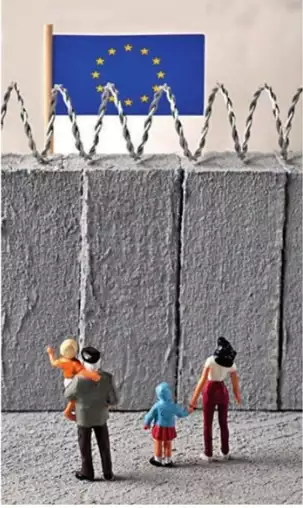Europe builds that ‘wall’…to keep out Africans?

On June 11, the non-refundable fee for a European Schengen area visa application goes up 12.5 per cent to 90 euros for a prospective 90-day stay, making it possible for the European Union (EU) to generate millions extra.
A substantial chunk of the money will come from disappointed Africans, who will have tried and failed to secure short-term entry to the 26 member states within Europe’s Schengen area.
Semafor’s Alexander Onukwue suggests it may be a different way for a Europe fearful of migration to build that wall. In his piece, he says that rejected visa applications from people living in Africa account for nearly half of the 130 million euros earned by the EU in 2023 from this particular revenue stream. That’s despite Africa accounting for just a quarter of visa applications.
The cited numbers were crunched by LAGO Collective, a London-based firm that describes itself as a “community of designers, researchers and policymakers working together to find solutions to global challenges”. LAGO used data from the European Commission’s migration and home affairs office.
Why such a high visa rejection rate for Africans, especially applicants from Ghana, Senegal and Nigeria?
Semafor quotes LAGO’s founder Marta Foresti, who suggests there may be “a relationship between the GDP of countries and rejection rates”. Professor Mehari Taddele Maru of the European University Institute in Italy cites his own research that shows a “predetermined bias” puts African applicants at greater risk – roughly 10 percentage points – of rejection than the global average.
It’s something we all probably knew in our hearts but numbers hadn’t been fastened to the suspicion.
Now they have.


